Tisha B’Av and Mount Nebo
| By Yoni Brown | 0 Comments

The Book of Devarim is thematically tied to spiritual descent and yet hints at the Ultimate Redemption. Is there a spiritual treasure buried in exile?
Continue reading...| By Yoni Brown | 0 Comments

The Book of Devarim is thematically tied to spiritual descent and yet hints at the Ultimate Redemption. Is there a spiritual treasure buried in exile?
Continue reading...| By Staff Writer | 0 Comments

The 28th episode in its series about the personal struggles and achievements of Chabad representatives
Continue reading...| By Yoni Brown | 0 Comments

On July 24 and 25, one hundred Chabad emissaries gathered for a Mental Health training conference in the Crowne Plaza Hotel in Northbrook, Illinois, just north of Chicago. Twenty minutes from Highland Park, where this year’s Fourth of July parade ended in a horrific shooting, the Northbrook location put an exclamation point on the need to confront the growing mental health crisis Chabad leaders face in their communities.
Like many of their American colleagues, Chabad rabbis and rebbetzins in Illinois have a broad reach, regularly engaging with Jewish youth, college students, young professionals, and adults of all ages. “We’re in constant contact with a broad crowd,” says Rabbi Meir Moscowitz, the regional director of Chabad-Lubavitch of Illinois. “We frequently find ourselves in the position of first responders, so we need the tools to identify when someone needs help.”
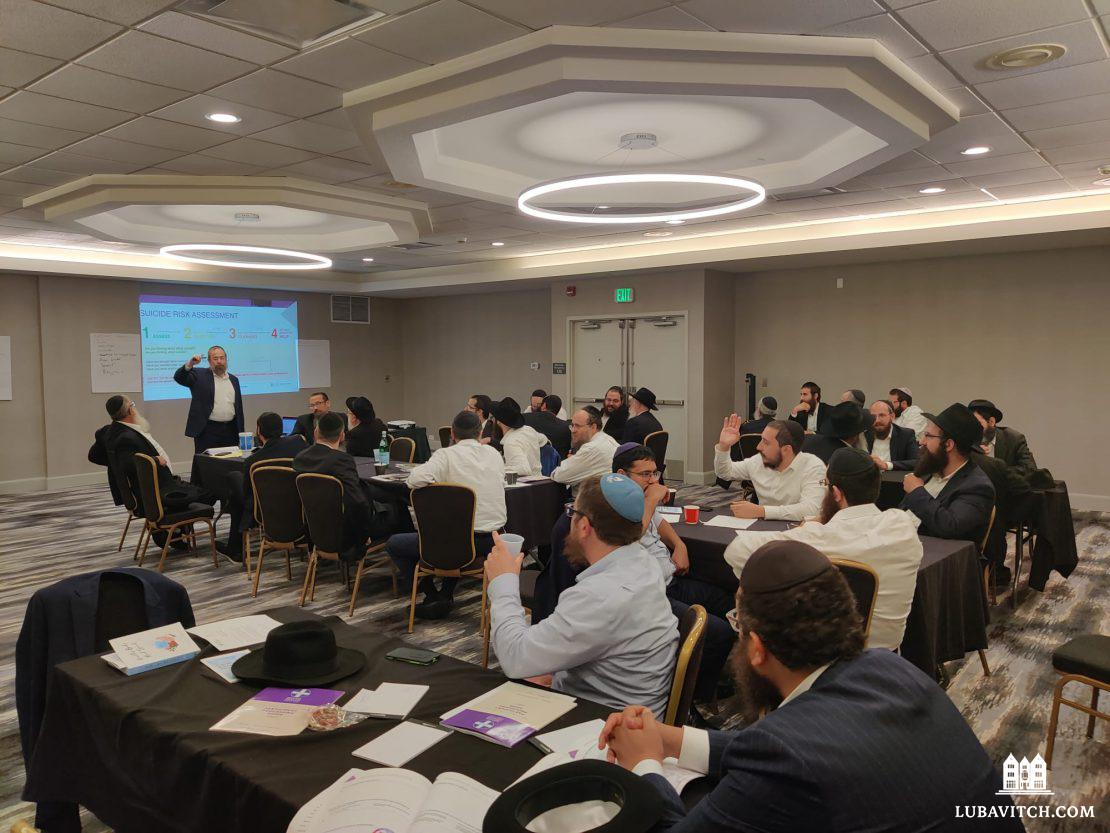
Last Sunday and Monday’s regional conference presented an opportunity for Illinois’ Chabad emissaries to unite and focus on combating the mental health crisis. “We wanted to make these resources as accessible as possible,” Rabbi Moscowitz said. Placing a high priority on accessibility meant the organizers provided a program for the entire family. A full children’s program allowed parents to focus on the day’s topic.
In two sessions totaling six hours, licensed instructors Rabbi Chaim Lazaroff and Mrs. Gittel Francis LMSW taught Mental Health First Aid. It’s a course that helps trainees identify when someone is struggling and provides concrete tools to approach, encourage, and support them. “A lot of our work with students is simply counseling them,” says Rabbi Dovid Tiechtel, director of Illini Chabad at the University of Illinois. “Students are now more anxious than ever, especially since Covid.” Even after almost two decades of counseling students, he says the training taught him a great deal and gave structure to what he already knew. For others in the room, it was their first in-depth exposure to these ideas.
The conference program presented the Lubavitcher Rebbe’s teachings on mental wellbeing, and Chabad Emissary to Sumy, Ukraine, Rabbi Yechiel Shlomo Levitansky was on hand to lead a farbrengen about the need to balance self-care with care for others. “Rabbi Levitanksy has Chicago roots, and his talk made a deep impression on all of us,” Rabbi Moscowitz says.
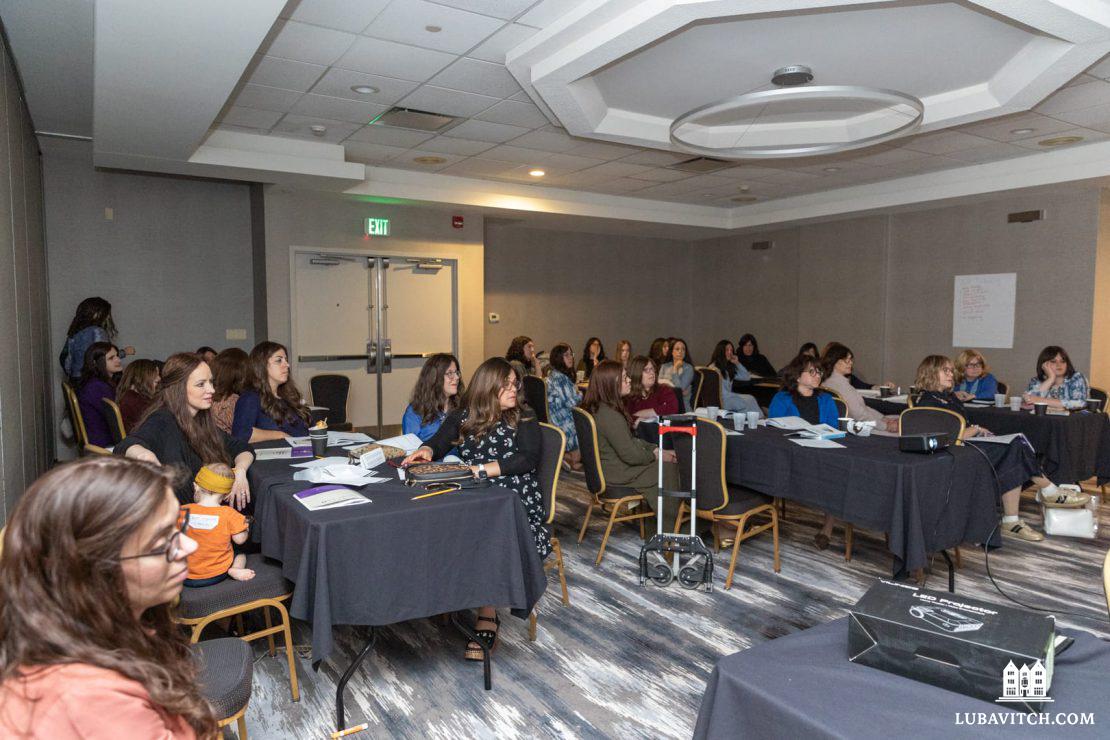
Most of the one hundred participants completed the final stage of the course on their own time and received Mental Health First Aid certification. Rabbi Chaim Shanowitz, co-director of Chabad of Deerfield, Illinois, who also leads a CTeen youth chapter, said the conference was indispensable. “We’ve seen many more people struggling due to the events in Highland Park. It’s reassuring that we’re now better able to be there for them,” he said.
Although it’s only been a week since the conference, Rabbi Yosef Moscowitz, executive director of Lubavitch Chabad of Illinois, says the feedback has been “phenomenal”. “Several shluchim from throughout the state reached out with stories of how they implemented the practical skills and the spiritual inspiration the conference gave them.”
Rabbi Tiechtel says the skills the training provided are crucial for every community leader and educator. “If you’re a counselor at a summer camp, you need to know how to put on a band-aid,” he says, “and if you’re counseling people in today’s environment, you need to know how to identify people’s struggles, and how to help them.”
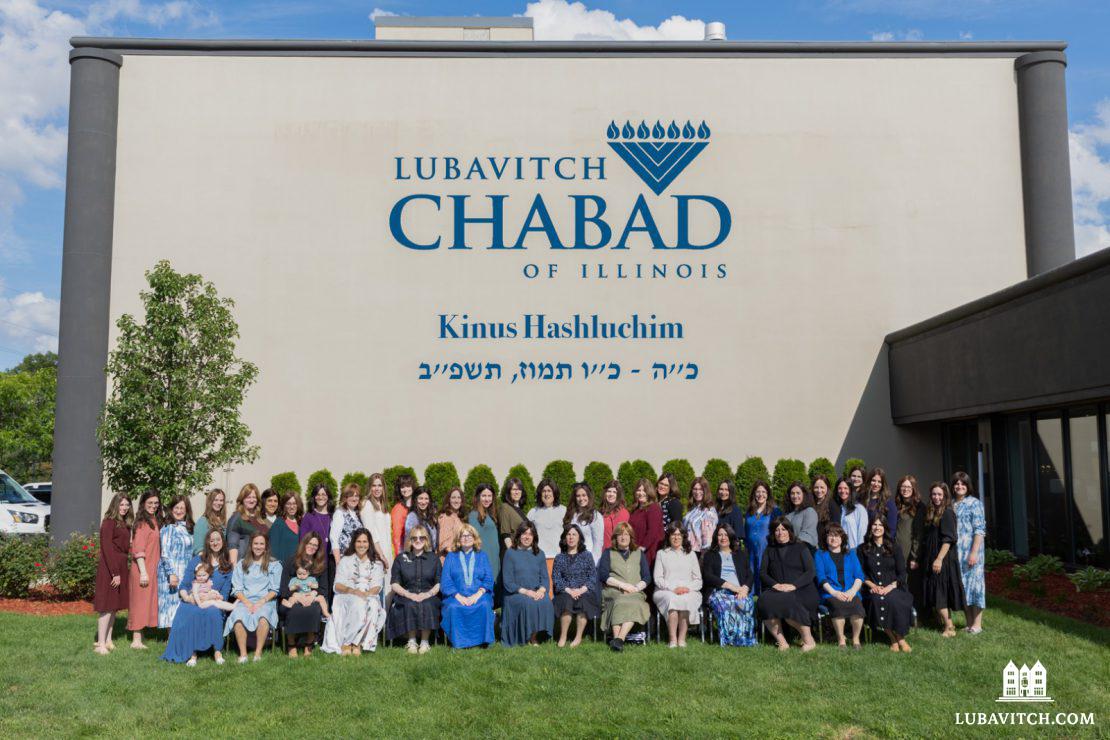
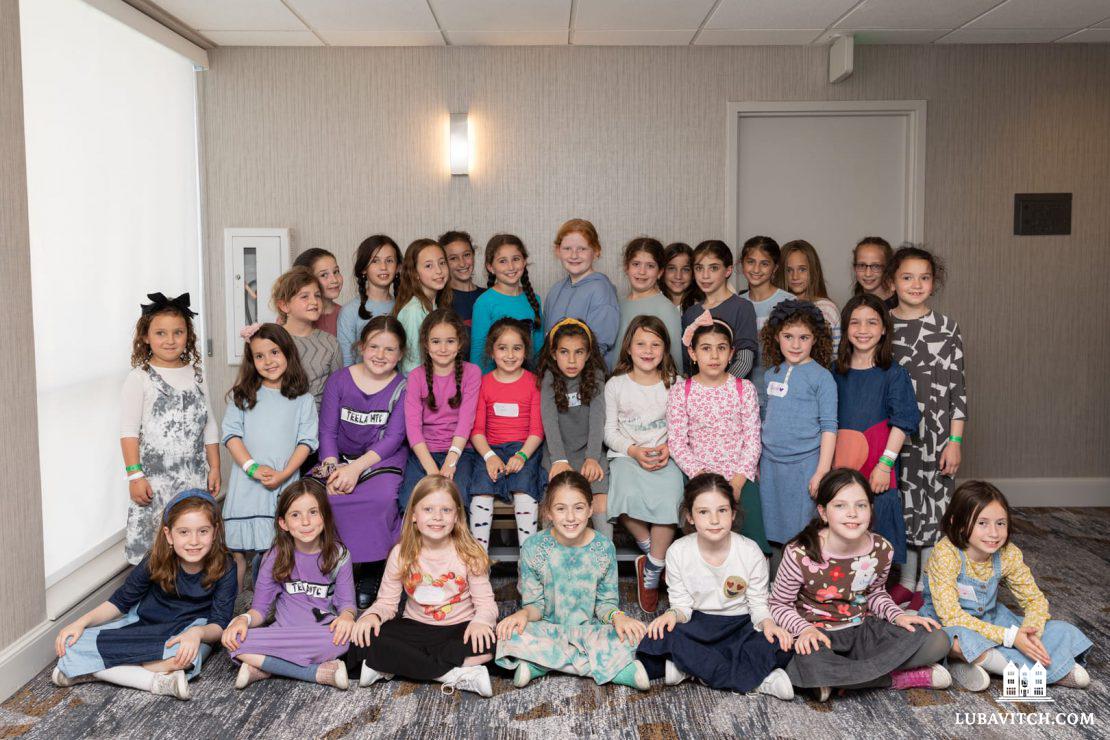
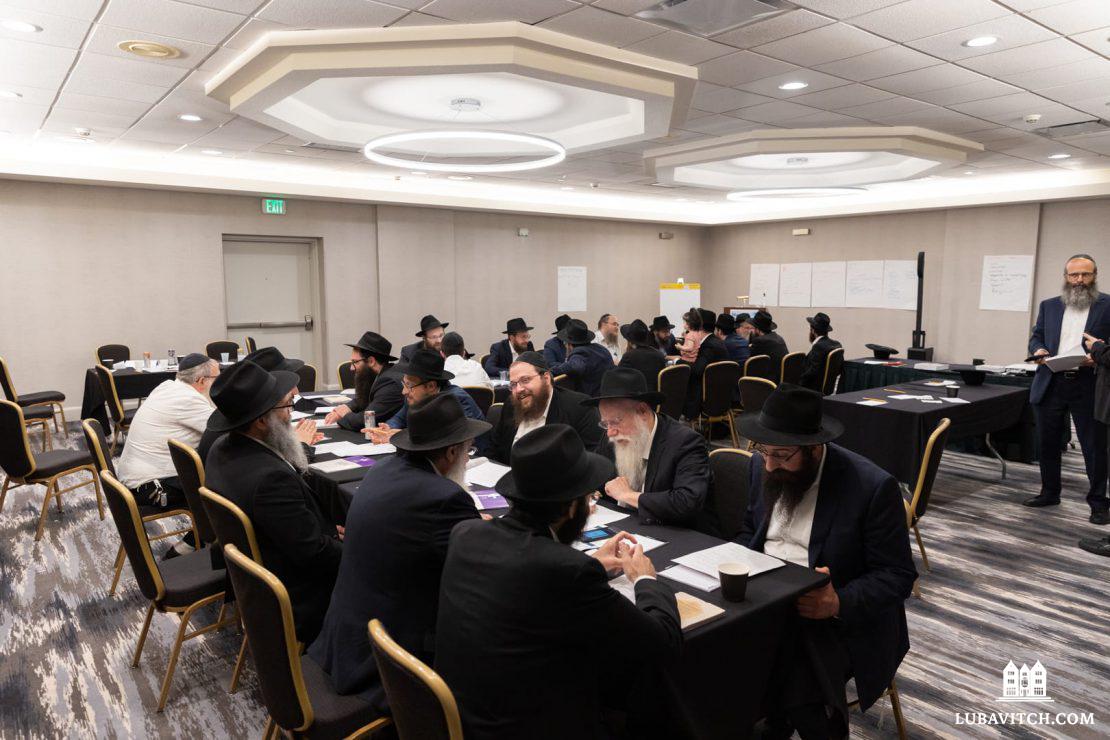
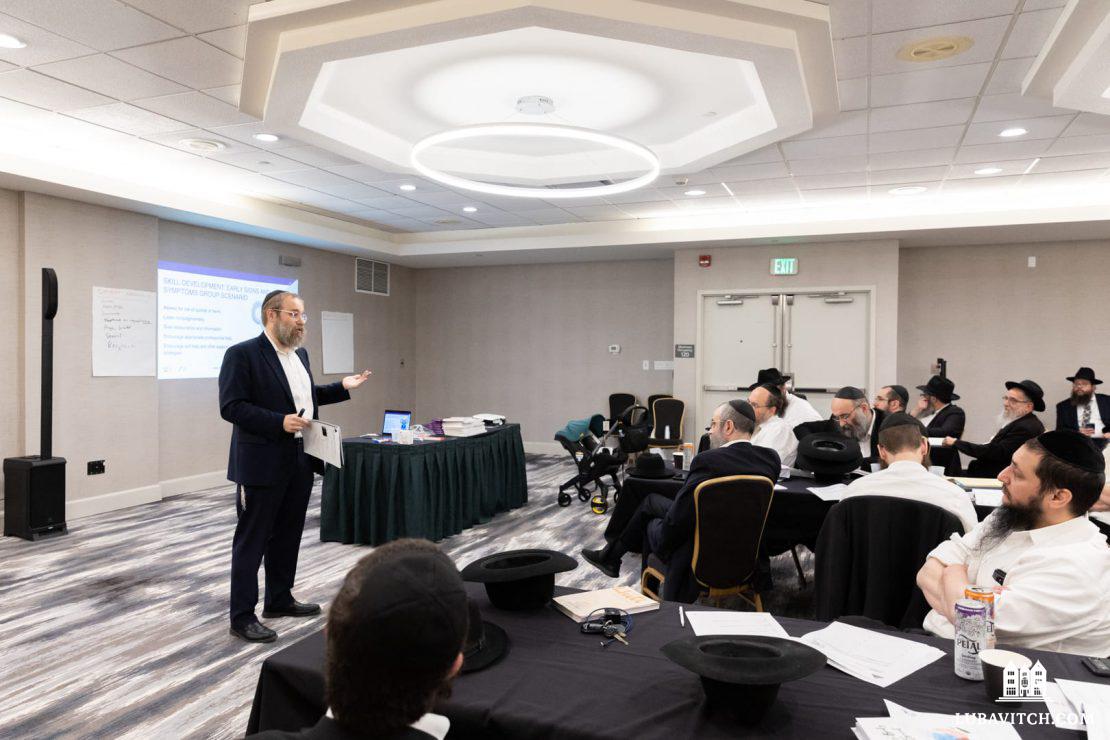
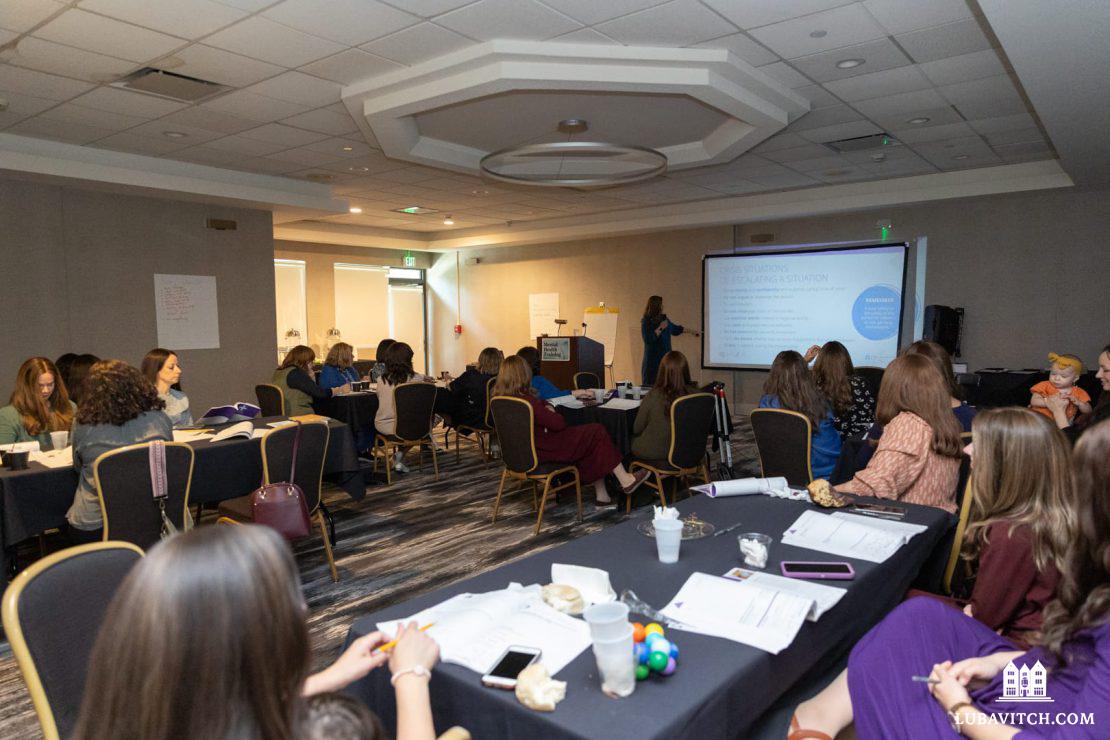
| By Yoni Brown | One Comment
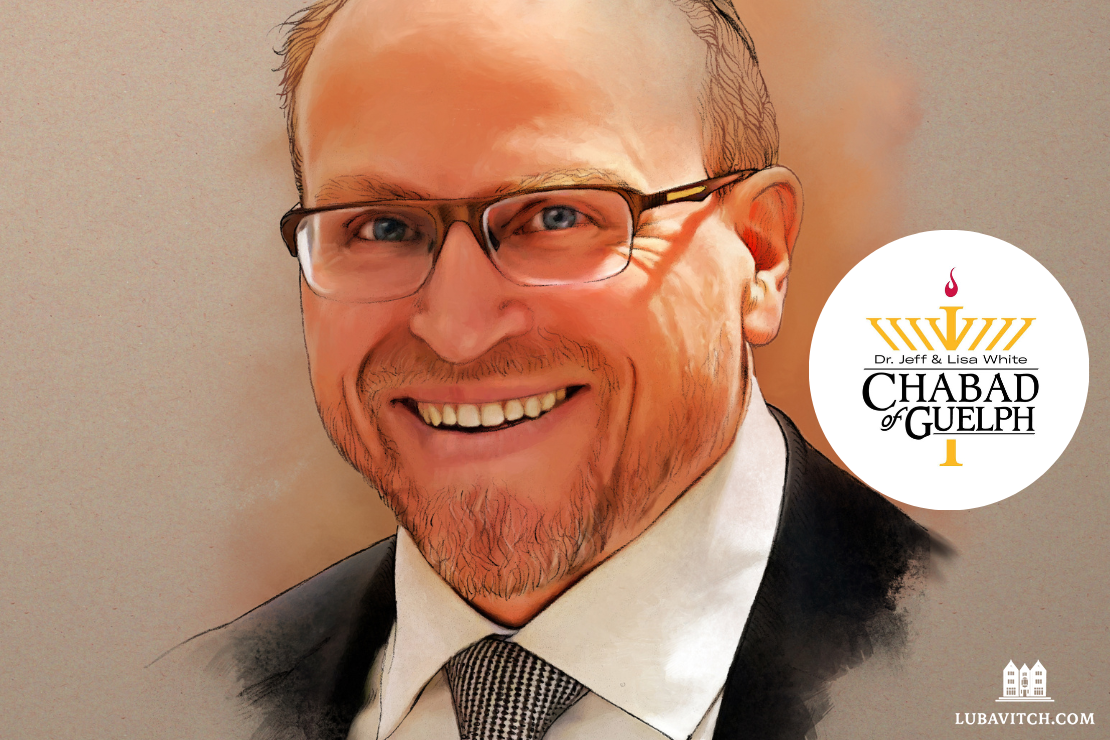
This July, on Jeff’s yahrzeit, the Dr. Jeff & Lisa White Chabad of Guelph was dedicated in his honor
Continue reading...| By Yoni Brown | 0 Comments

Torah records the forty-two journeys. Why was it necessary to recount every step of the way?
Continue reading...| By Yoni Brown | 0 Comments
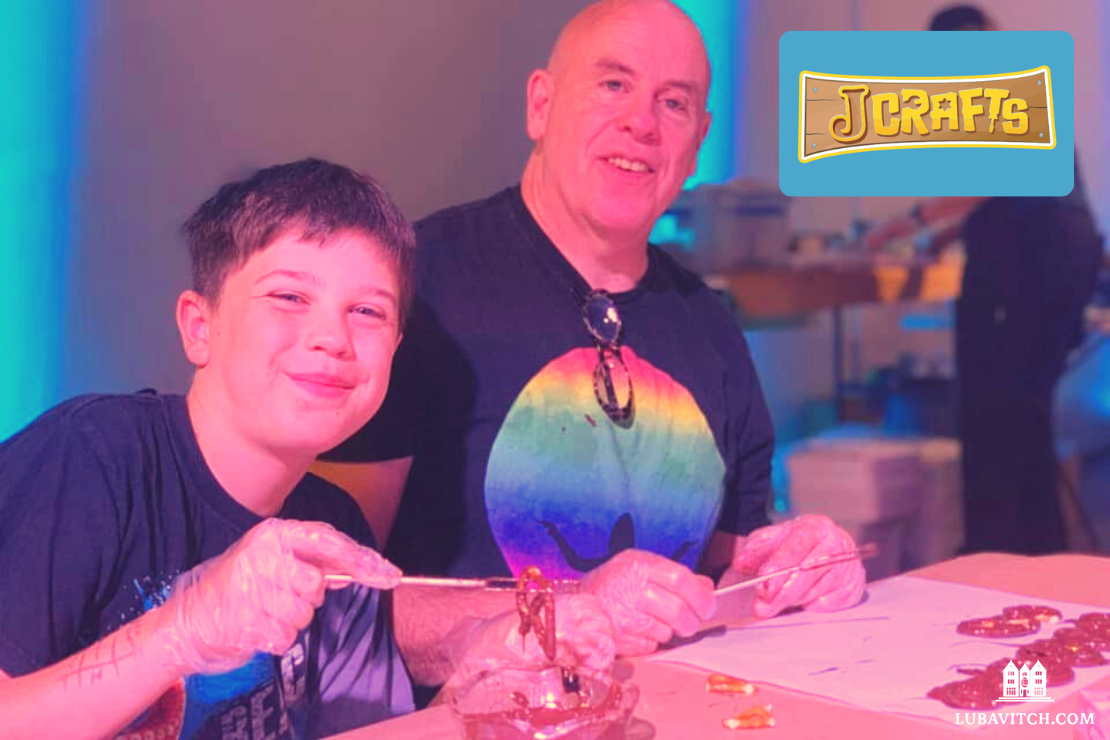
In southern Maryland, Jewish kids are having a blast and learning Judaism at Rabbi Levi Raskin’s immersive educational center
Continue reading...| By Yoni Brown | 0 Comments

Rabbi Aryeh Weinstein has seen the damage left in the wake of careless bar and bat mitzvah lessons.
Continue reading...| By Baila Olidort | One Comment
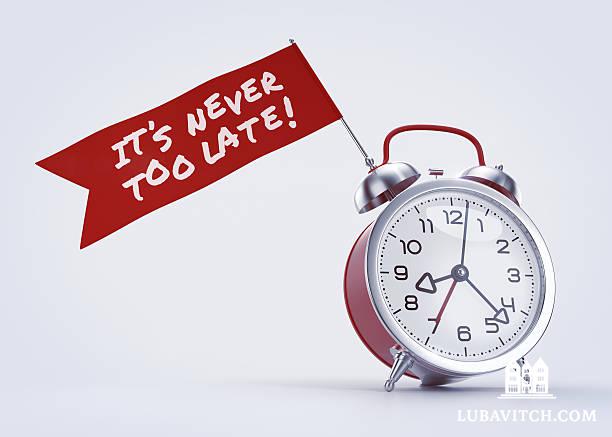
Across every segment of Jewish life, in America and elsewhere, we are seeing a demand for genuine, substantive, Torah study opportunities
Continue reading...| By Yoni Brown | One Comment

An initiative encouraging routine charity is gaining a foothold in American public schools and places of business
Continue reading...| By Howard Glowinsky | 0 Comments

Individuals who have come to Torah study as adults reflect upon something that they have learned
Continue reading...| By Yoni Brown | 2 Comments

After two decades of communal growth and half a decade of renovations, and with the help of an old friend from Bogata, Columbia, Chabad of Helsinki, Finland, has a permanent home in a historic building
Continue reading...| By Staff Writer | 0 Comments

The 27th episode in its series about the personal struggles and achievements of Chabad representatives
Continue reading...| By Yoni Brown | One Comment

A thriving tropical community of Jewish spiritual seekers and surfers gets a full-time Chabad presence
Continue reading...| By Yoni Brown | 2 Comments
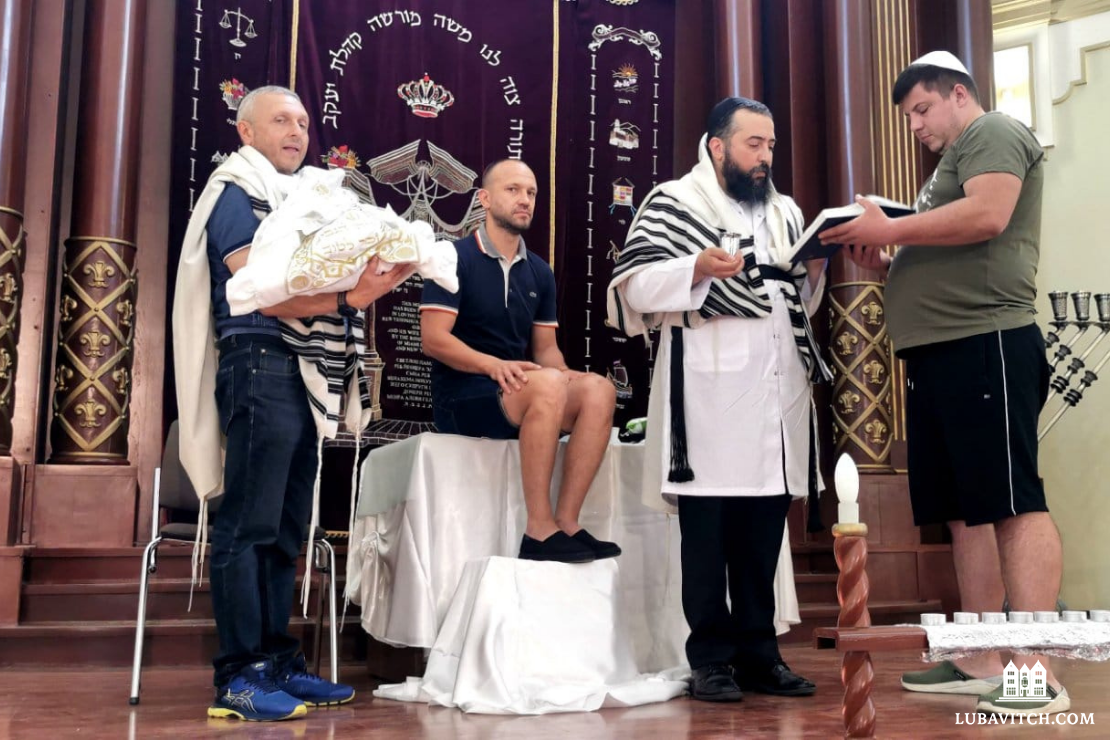
The war-weary city fell silent for a moment as the Jewish community gathered to welcome their newest member.
Continue reading...| By Yoni Brown | 3 Comments

One person at a time, a small California community outgrew their existing space. Now they purchased a new 12,000 square foot building to house Chabad of Laguna Niguel’s numerous activities
Continue reading...| By Yoni Brown | 0 Comments
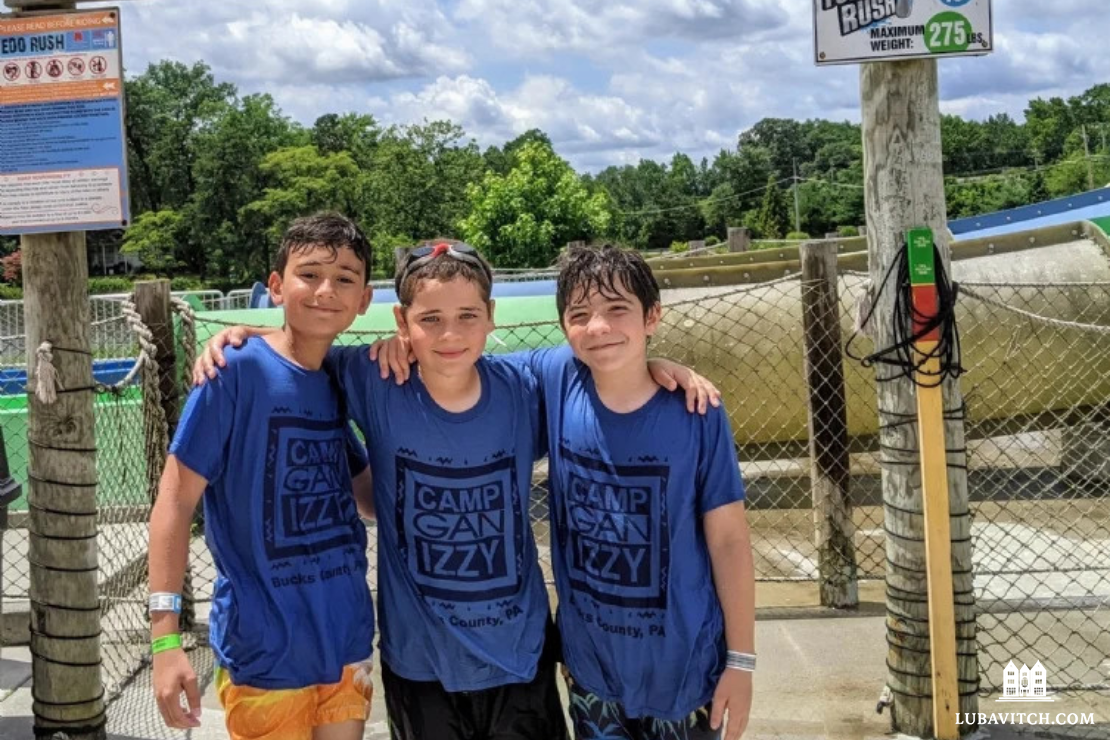
While the world returns to a pre-pandemic normal, enrollment at Chabad day camps is surging past pre-pandemic numbers
Continue reading...| By Hollie Levine | 0 Comments
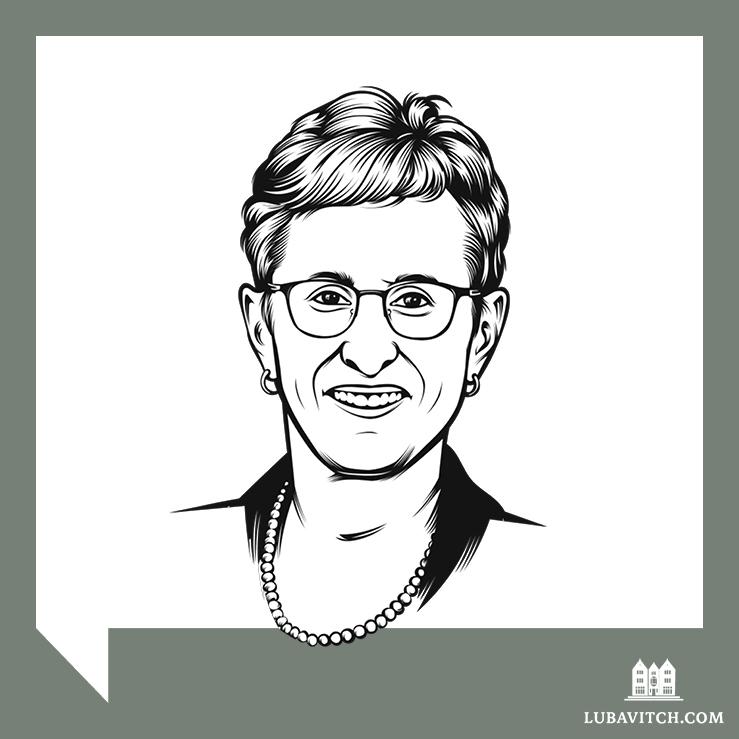
Individuals who have come to Torah study as adults reflect upon something that they have learned
Continue reading...| By Yoni Brown | One Comment

What the almonds that sprung from Aaron’s staff have to say about overthinking good ideas
Continue reading...| By Rabbi Mendel Lifshitz | 0 Comments

Ahead of Gimmel Tammuz, Lubavitch.com asked Shluchim to share a teaching of the Rebbe that informs their approach to shlichus, and their lives.
Continue reading...| By Rabbi Yehuda Ceitlin | 0 Comments

Ahead of Gimmel Tammuz, Lubavitch.com asked Shluchim to share a teaching of the Rebbe that informs their approach to shlichus, and their lives.
On a Sunday in the late-80s, my father took us to New York to meet the Rebbe. Each Sunday, thousands of people from all walks of life stood in a “receiving line” to be blessed by the Rebbe. They would also receive a dollar bill from him to pass on to charity.
As my brother Sholom Ber and I stood in line and the wait stretched on, my father tried to keep us patient. He gave us each a quarter, assuring us that we would later go to the candy store and buy gumballs.
The line sped up, and before we knew it, we stood in front of the Rebbe. The Rebbe gave my brother the usual blessing and a dollar. But instead of walking to the exit, my brother took out the quarter for candy and gave it to the Rebbe. I think my brother thought, “You gave me your dollar for charity, so I want to give charity with my money.”
My brother’s sweet gesture was spontaneous and out of the ordinary, yet the Rebbe took it very seriously. He signaled to an aide for a box to be brought — used for gifts brought by dignitaries such as books, plaques, keys to cities, and the like — and motioned to place my brother’s quarter in it.
Observing the scene, I decided to do the same with my coin. Once again, the Rebbe asked for it to be placed in the special box.
That 25-cent lesson still reverberates with me today.
We live in a world that can seem cold and heartless. When someone decides to embark on a positive journey, there are often voices that are quick to throw cold water on their efforts: what difference will your tiny action make? Nothing will really change — it’s just a drop in the bucket.
The Rebbe showed my brother and me on that day that when someone shows a spirit of goodness, it should be encouraged and cherished. The smallest good deed matters, even in the face of what seems to be overwhelming odds. Every drop makes a ripple, and every ripple builds a wave. A positive action, even small, will add up and bring us closer to a world saturated with goodness.
Rabbi Yehuda Ceitlin is the Outreach Director of Chabad of Tucson, Arizona.
| By Rabbi Mendel Rivkin | 0 Comments

Ahead of Gimmel Tammuz, Lubavitch.com asked Shluchim to share a teaching of the Rebbe that informs their approach to shlichus, and their lives.
Continue reading...| By Rabbi Levi Greenberg | 0 Comments

Ahead of Gimmel Tammuz, Lubavitch.com asked Shluchim to share a teaching of the Rebbe that informs their approach to shlichus, and their lives.
Continue reading...| By Yoni Brown | 0 Comments

The spies sent to scout the Land of Israel took an unusual approach with a universal message
Continue reading...| By Staff Writer | 0 Comments
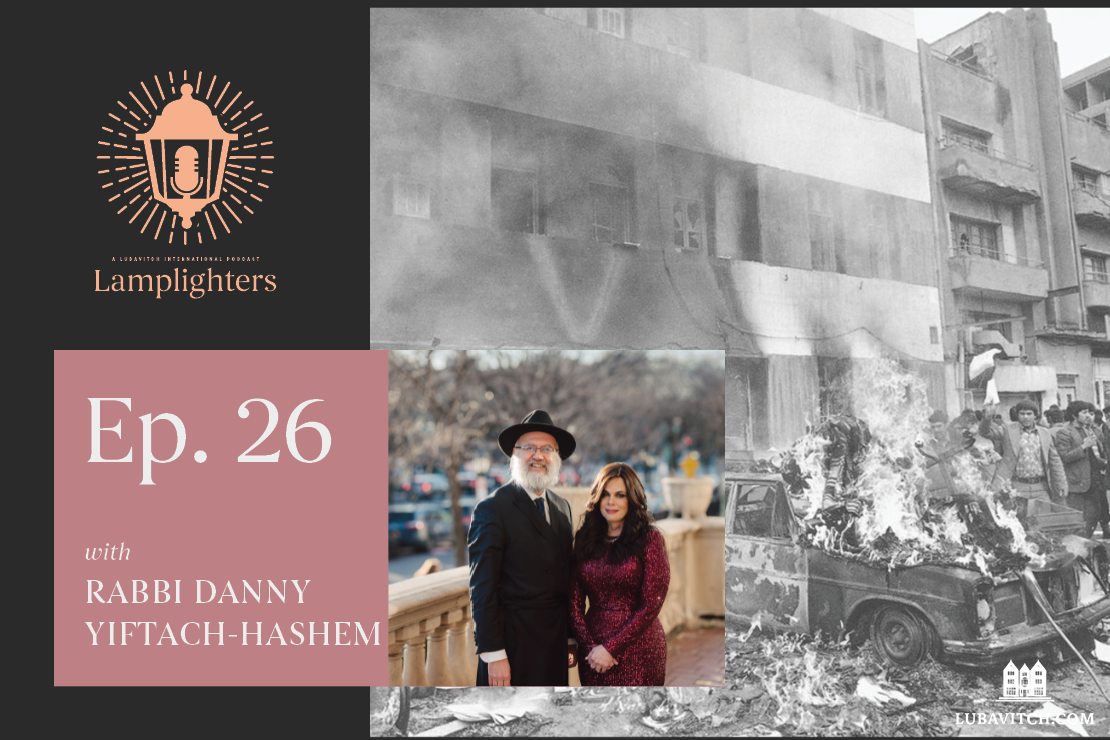
The 26th episode in its series about the personal struggles and achievements of Chabad representatives
Continue reading...